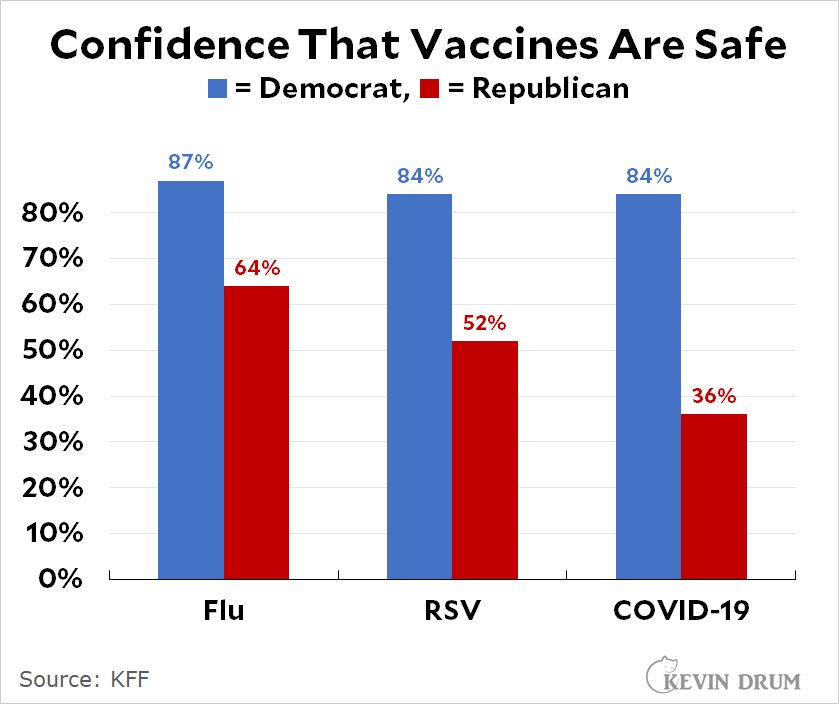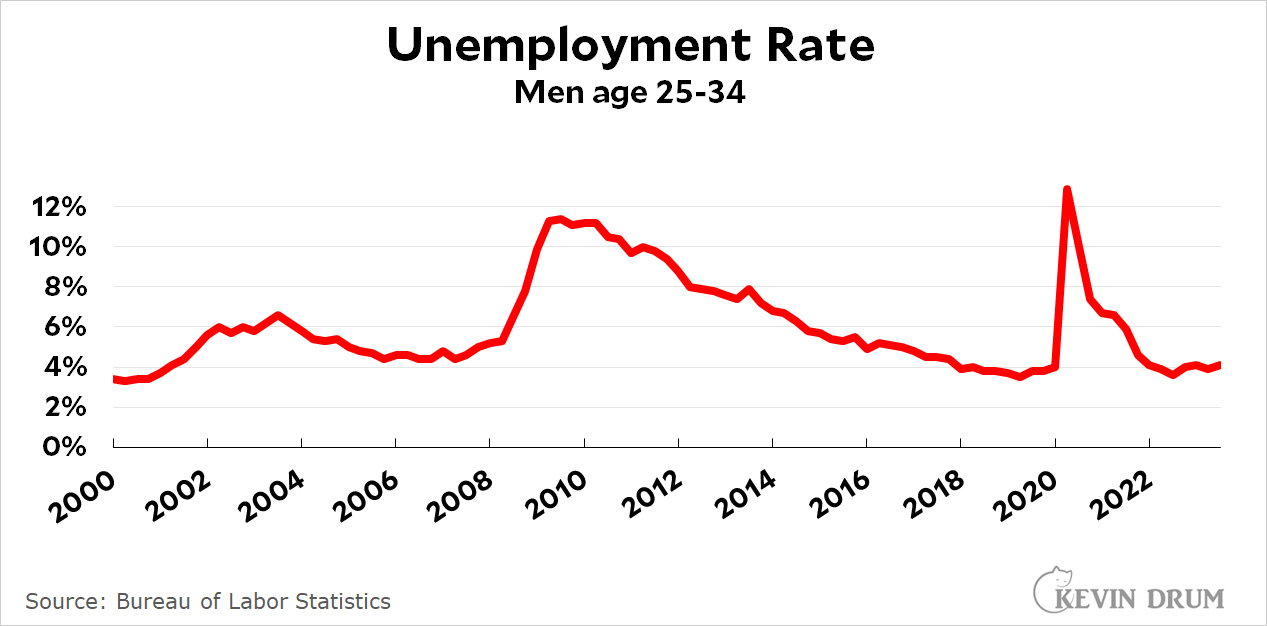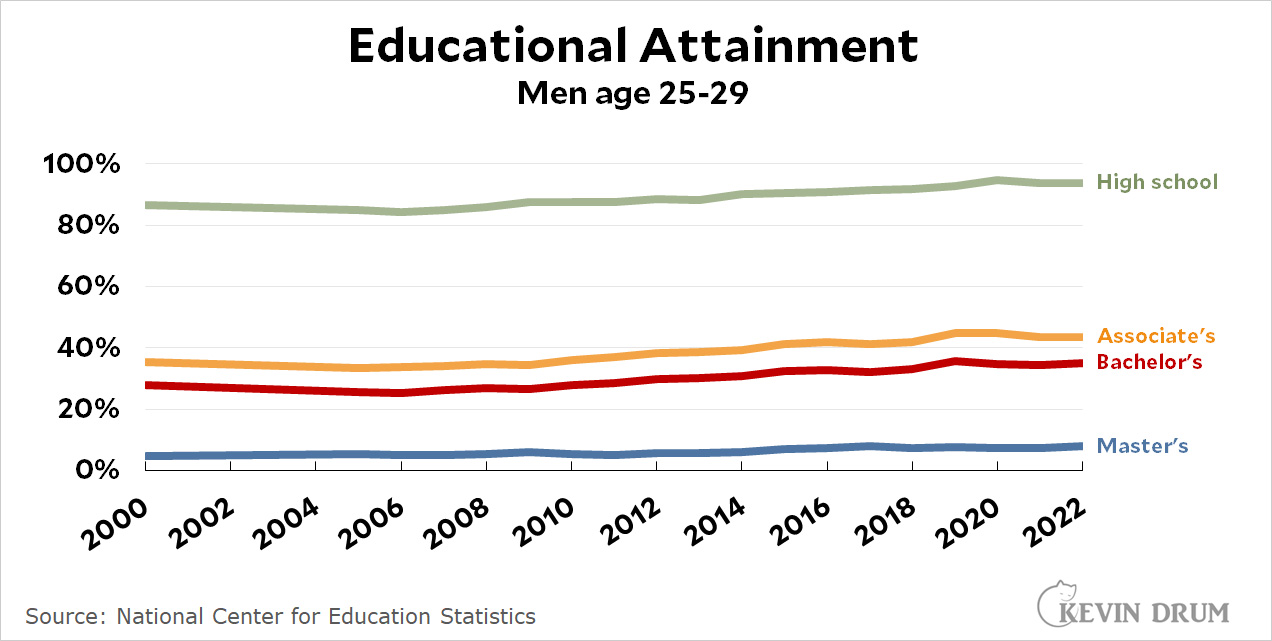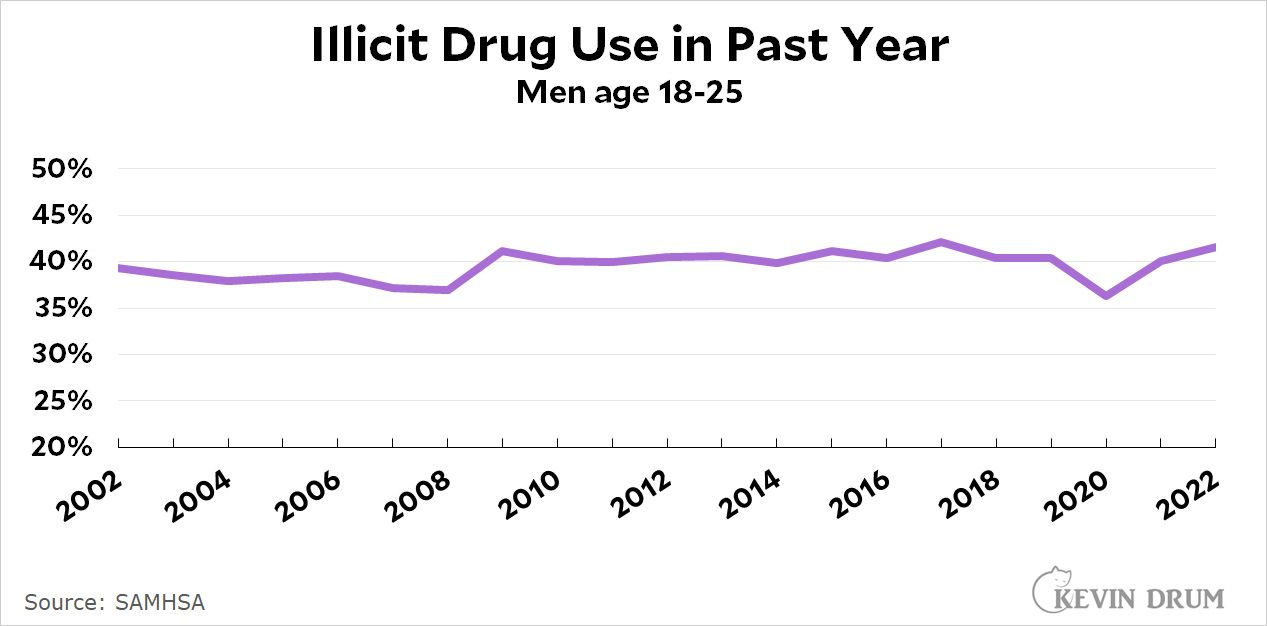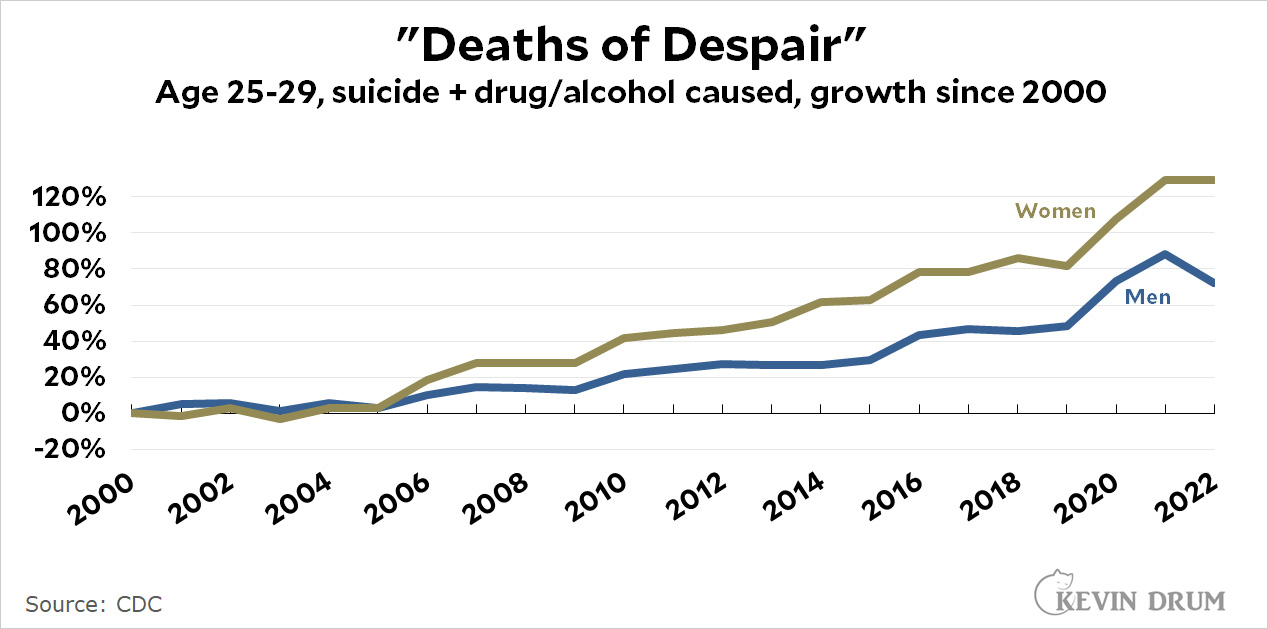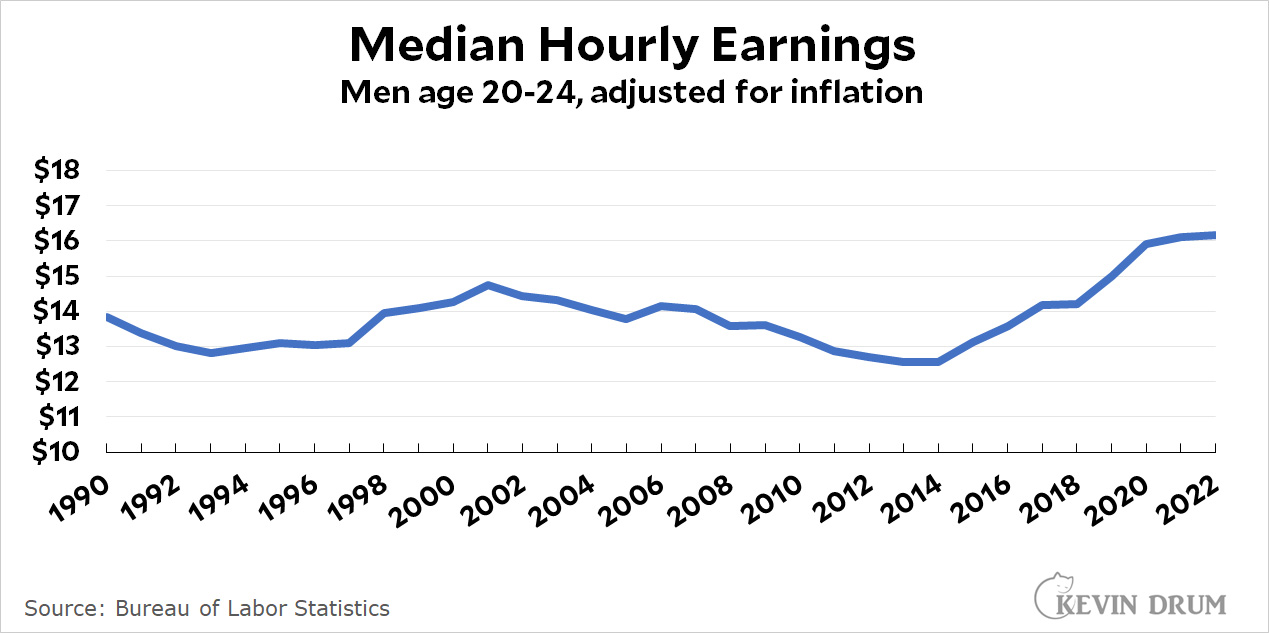The Wall Street Journal suggests the Fed will make a U-turn on interest rates soon:
Twenty months after the Federal Reserve began a historic campaign against inflation, investors now believe there is a much greater chance that the central bank will cut rates in just four months than raise them again in the foreseeable future. Interest-rate futures indicated Monday a 52% chance the Fed will lower rates by at least a quarter-of-a-percentage point by its May 2024 policy meeting.
That would be good news. It would be even better news if the Fed did it sooner. The interest rate hikes of last year are likely to start having an impact soon and the signs of a recession are mounting. Youth unemployment has spiked, personal savings are dropping, investment has stagnated, and the yield curve is staying stubbornly and deeply inverted:
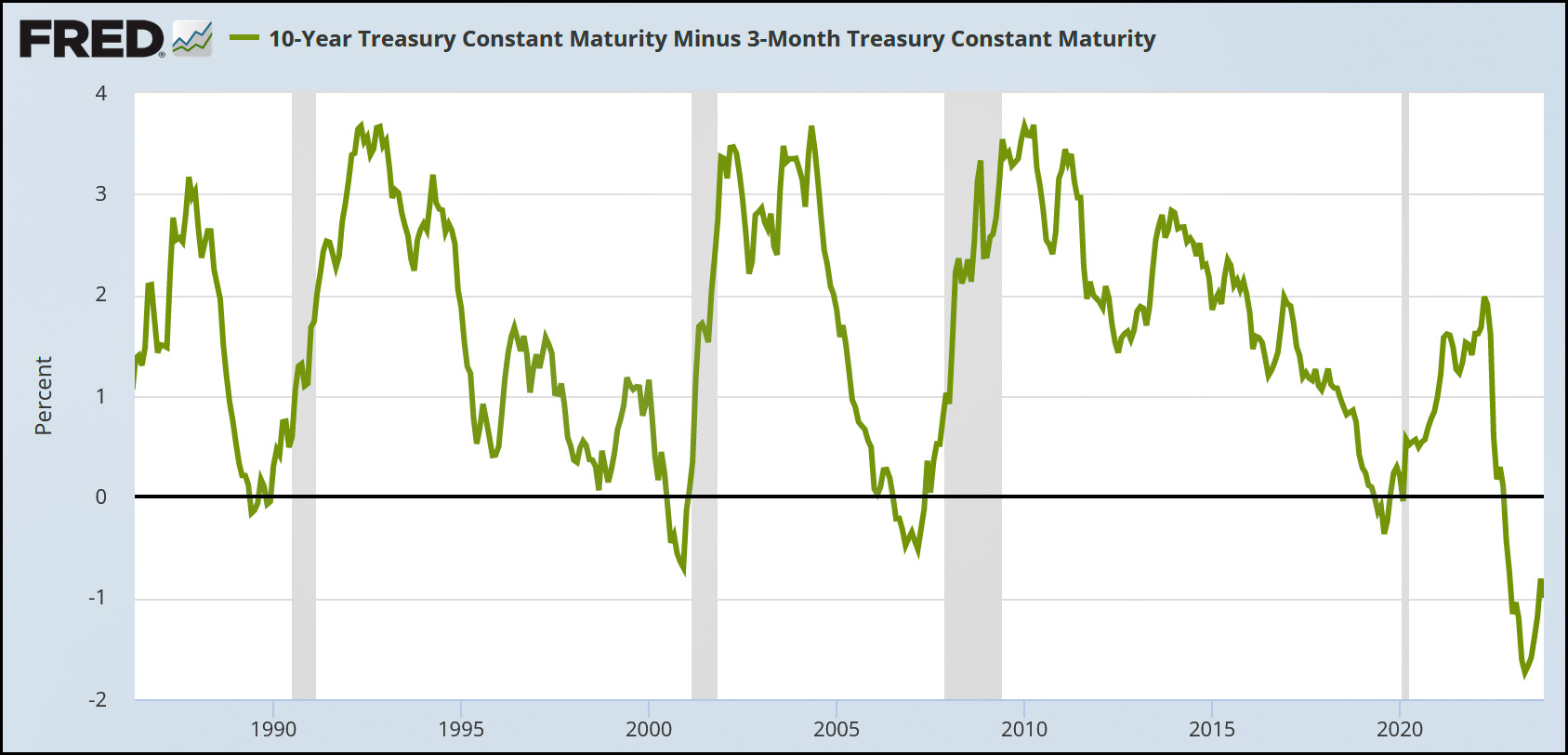 At the same time, inflation looks to be well under control:
At the same time, inflation looks to be well under control:
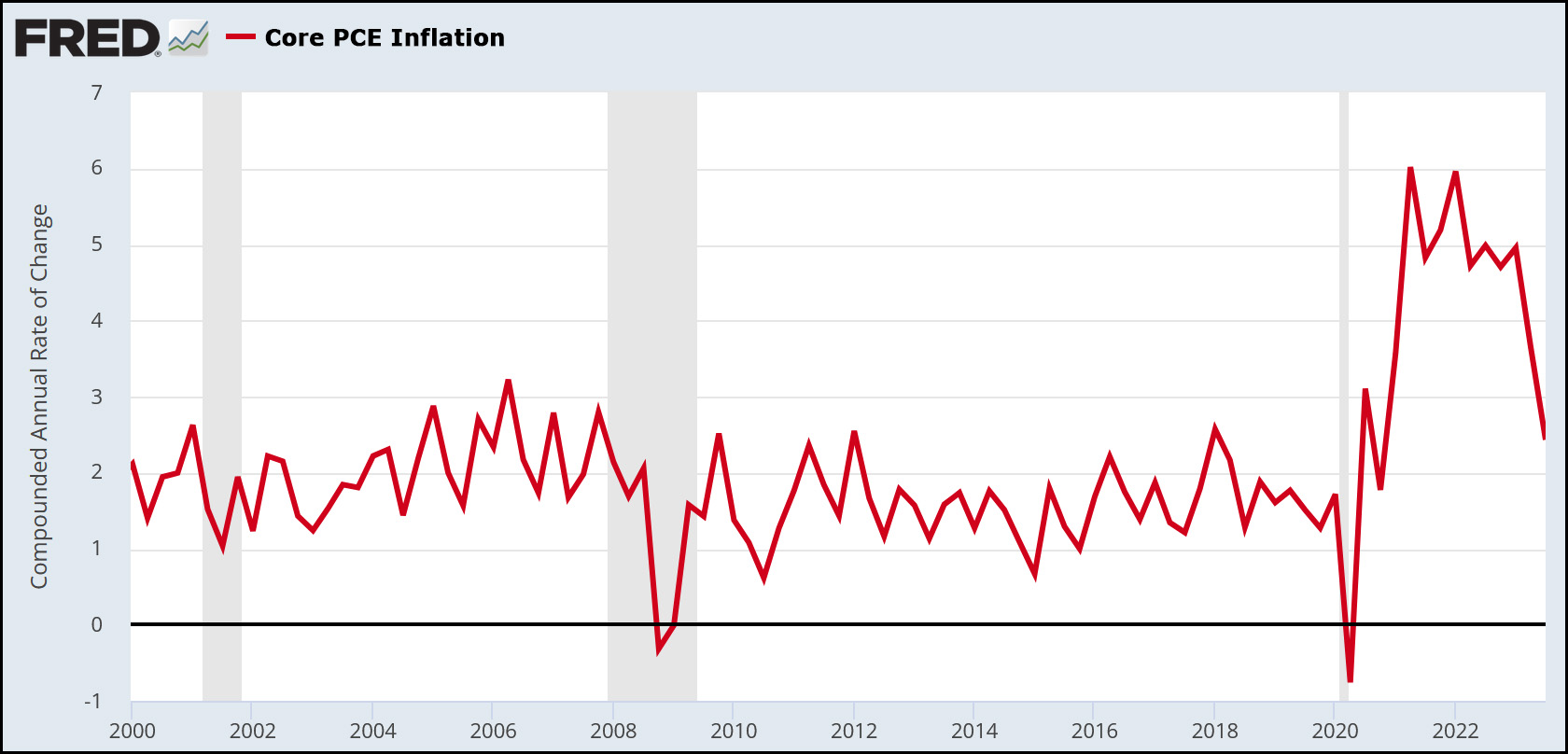 I've never been a big believer in "forward guidance," but I do believe a bit in ordinary old animal spirits. High interest rates are going to do what they do no matter what the Fed does now, but a reduction in interest rates could have at least a small impact on optimism that affects spending and investment. The sooner it happens the better.
I've never been a big believer in "forward guidance," but I do believe a bit in ordinary old animal spirits. High interest rates are going to do what they do no matter what the Fed does now, but a reduction in interest rates could have at least a small impact on optimism that affects spending and investment. The sooner it happens the better.



